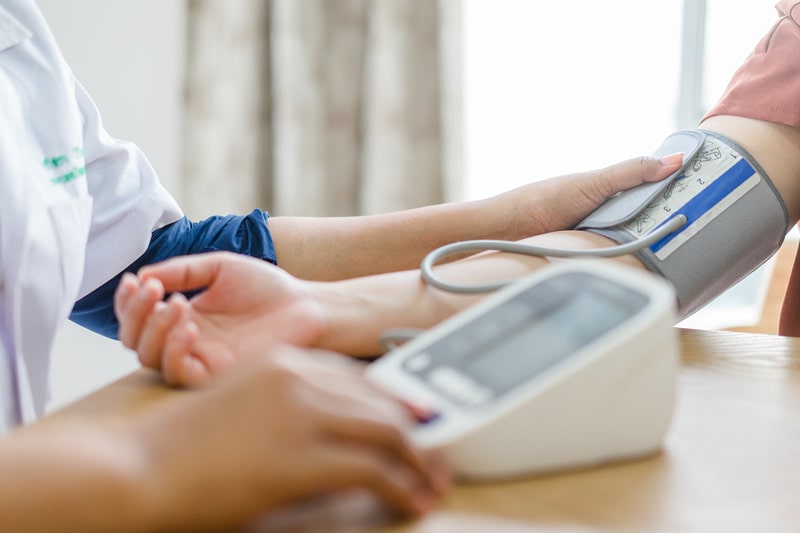Many times, high blood pressure (hypertension) and increased pulse (or heart rate) occur together. However, some people with hypertension have low pulses. This may seem contradictory, but there’s usually an underlying cause that may or may not indicate a health problem.
In this article, I’ll clarify the difference between blood pressure and pulse. Then I’ll explain what can cause someone to have high blood pressure with a low pulse as well as the relationship between blood pressure and heart rate. Lastly, I’ll discuss when high blood pressure and a low pulse is a concern to discuss with your doctor. No matter your situation, there are ways to manage it and keep your heart as healthy as possible.

WHAT’S THE DIFFERENCE BETWEEN BLOOD PRESSURE AND PULSE?
Blood pressure and pulse readings both reflect the state of your heart, blood vessels, and overall health. Blood pressure is the pressure generated by blood moving through your blood vessels. High blood pressure is a reading greater than 130/80 mmHg. A diagnosis of hypertension comes from repeated elevated blood pressure readings in a clinical office setting.
Your pulse (also known as your heart rate) is the number of times your heart beats per minute. A normal resting pulse rate ranges between 60-100 beats per minute. A resting pulse above 100 beats per minute is referred to as tachycardia, while a resting pulse below 60 beats per minute is bradycardia.
Heart rate can increase for any of the following reasons:
- Physical activity: Exercise increases pulse because the heart beats faster to supply active muscles with blood and oxygen.
- Substance use: Anything that contains caffeine (such as coffee) and stimulant drugs (like cocaine and methamphetamines) can raise pulse rate.
- Stress: Mental stress—including anxiety, fear, or emotional distress—can temporarily increase pulse rate.
WHAT’S THE RELATIONSHIP BETWEEN BLOOD PRESSURE AND HEART RATE?
Generally speaking, increased heart rate is associated with increased blood pressure. This means that having a higher heart rate can increase the risk of developing hypertension.
For people diagnosed with hypertension, also having a high heart rate increases the risk for heart disease. So it’s important for these individuals to monitor not only their blood pressure but also their heart rate.
WHAT CAN HIGH BLOOD PRESSURE AND LOW PULSE INDICATE?
A low pulse may indicate health problems like:
- Metabolic disorders like low thyroid hormone
- Heart tissue damage from heart disease or heart attack
- Dysfunction of the heart’s natural pacemaker, known as the sinus or sinoatrial node
- Problems in the heart’s electrical pathways
A person on medications that lower heart rate, like beta blockers, non-dihydropyridine calcium channel blockers, and ivabradine, may also experience low pulse.
